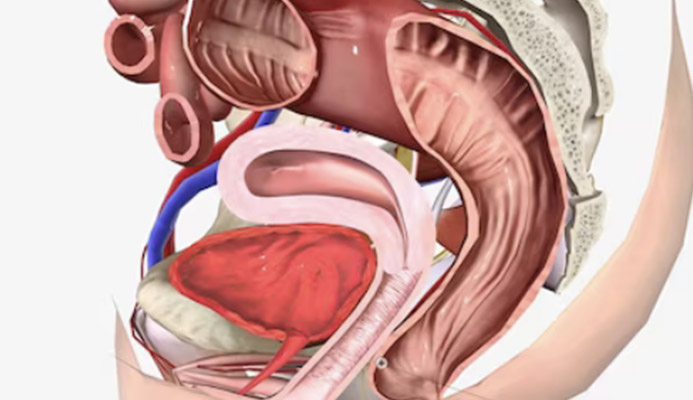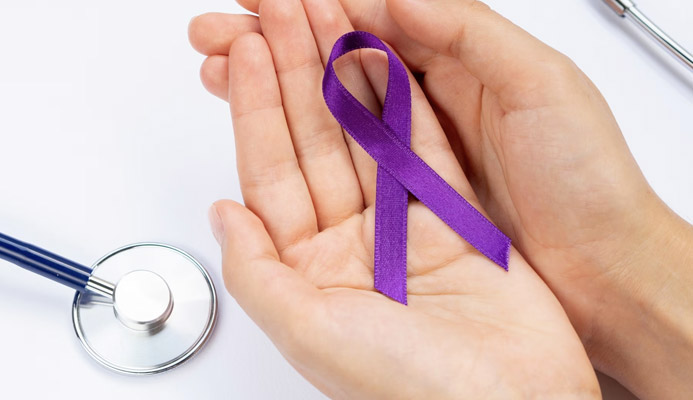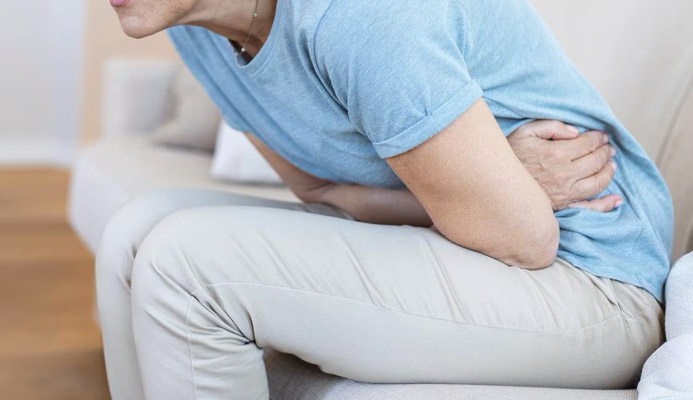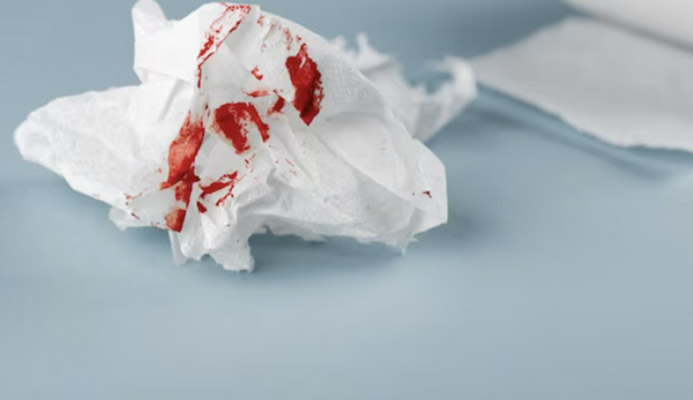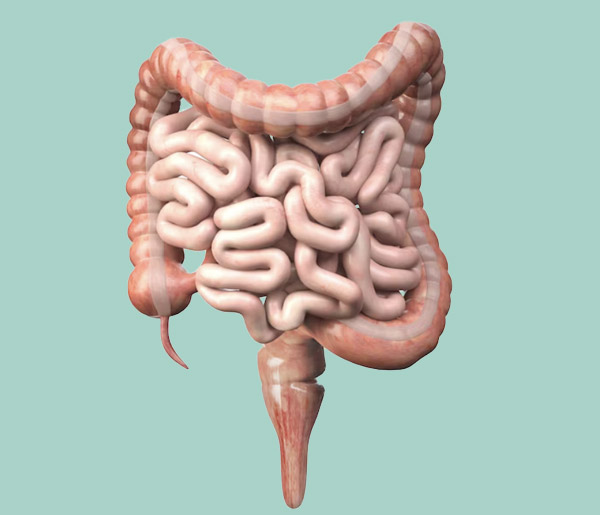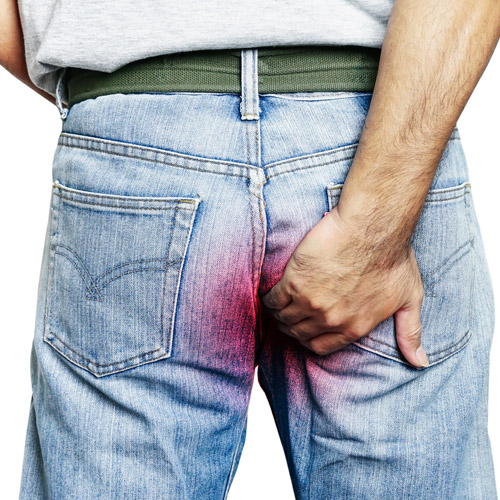
Do you often feel an irrepressible itch in your anus, prompting you to scratch and making it difficult not only for you to go about your normal working day, but also for you to get a proper rest at night?
Itching is often associated with burning, tingling, foreign body sensation in the anus, and these symptoms don't seem to diminish with time, in fact do you feel they have become chronic?
Anal itching is one of the most disabling proctologic conditions, afflicting countless of people worldwide.
Although it is not a real pathology, but a symptom that always has an underlying cause, anal itching is perceived by the patient just like a real disease, capable of greatly diminishing the quality of life.
Read this page written by Dr. Luisella Troyer, Medical Proctologist, to find out what anal itching can originate from, and what can be done to counteract and resolve it.
Whatever the cause of anal itching, idiopathic or secondary, it is always a good idea not to overdo topical corticosteroid treatment.
The anal and peri-anal mucosa, in fact, not having an adequateprotective coreno layer, is particularly absorbent, especially of topical preparations such as creams and ointments.
This means that cortisone can penetrate more easily into the tissues, helping yes the containment of inflammation, but also greatly lowering the immune defenses, and thus promoting the proliferation of fungi and bacteria, as well as the spread of viruses.
What is meant by anal itching?
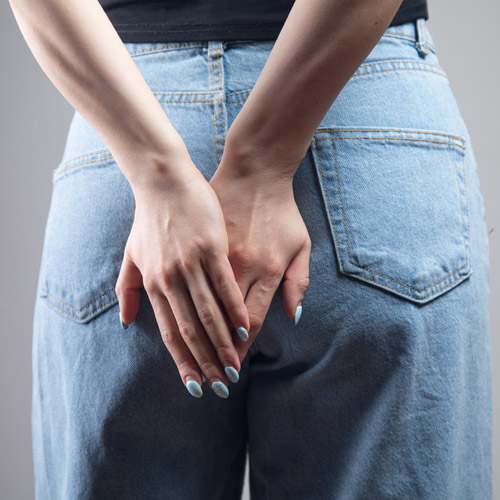
Anal itching, also known as pruritus ani, indicates a condition in which there is an urge to scratch the anus, often accompanied by tingling and, not infrequently, even burning.
At times, such urgency becomes so impractical that it seriously undermines the daily life of the sufferer, even going so far as to affect his or her social relationships.
Statistically, there is a greater propensity for anal itching by men than women, while the age group most affected appears to be adults, approximately between the second and third decades of life.
At the clinical level, there are two types of anal itching, based on the cause of its origin:
- Idiopathic anal itching;
- Secondary anal itching
Idiopathic anal itching, certainly the most difficult form to treat, has no specific organic motivation, and is usually severe.
Secondary anal itching, fortunately more common than idiopathic anal itching, as the name otherwise implies is a symptom of an upstream pathology that, when resolved, also results in the resolution of the itching.
What are the causes of anal itching?
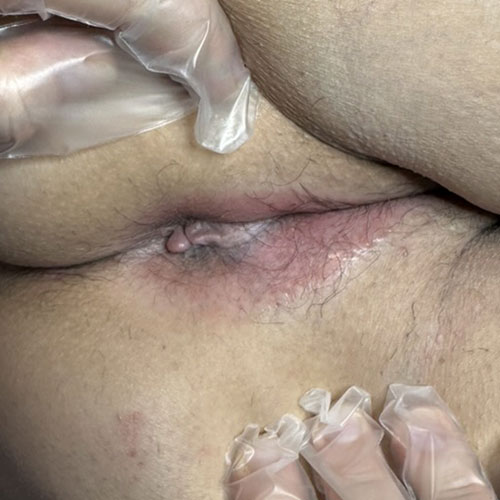
Idiopathic anal itching has no specific causes that can be traced to other diseases or physiological conditions, and it occurs suddenly and, almost always, violently.
Secondary anal itching, on the other hand, is always a symptom of a pathology, or otherwise pathological condition, which is the original cause of the problem.
In most cases, secondary anal itching is purely proctological in nature, and is due to a long list of anal canal pathologies, such as:
- Pathological hemorrhoids;
- Anal fissures;
- Anal fistulas;
- Anal chondylomatosis;
- Chronic diarrhea;
- Exudative scars resulting from past proctologic procedures;
- Anal polyps;
- Carcinomas of the anus and rectum;
- Sphincterial hypothermia (the so-called 'beating anus');
- Bacterial or parasitic infections (such as candidiasis);
- Aniti and proctitis;
- Psoriasis;
- Chemical dermatitis, given by the use of harsh detergents or excessive anal cleansing
All of these pathologies or otherwise pathological conditions, in the long run, irritate the anal mucosa and cause increased mucus production, often with hypotonium of the anal orifice, which in turn causes maceration of the mucosa and peri-anal skin, with intense dermatitis (anitis) and subsequent itching.
Wet anus is the medical term for precisely identifying a condition whereby, to an upstream pathology, macerated skin is derived, which in turn causes irritation and itching.
There is also an important co-morbidity factor to add: injured, reddened, and inflamed skin (often, with micro-lacerations due to the patient's scratching) is particularly prone to opportunistic bacterial and parasitic infections, which complicate the baseline situation, worsening anal itching.
The list of infectious agents that can affect the delicate anal mucosa and peri-anal skin is extremely long, but among the major ones we can mention:
- Staphylococcus;
- Treponema pallidum;
- Neisseria gonorrhea;
- Tuberculosis (in its anal form, though rare however possible);
- The Human Papillomavirus (HPV);
- Genital herpes simplex;
- The contagious mollusk
Also not to be forgotten is a particular kind of anal dermatitis due to contact with synthetic fabrics (nylon, synthetic blends or colored with special pigments), which in many individuals is sufficient to trigger great irritation and consequent anal itching.
When none of these secondary causes are present but itching is still triggered in the patient, it is called idiopathic.
Idiopathic pruritus is usually intermittent, particularly violent, and occurs in periods, in which months of quiet and remission are followed by weeks or months of recrudescence.
What is the symptom of anal itching?
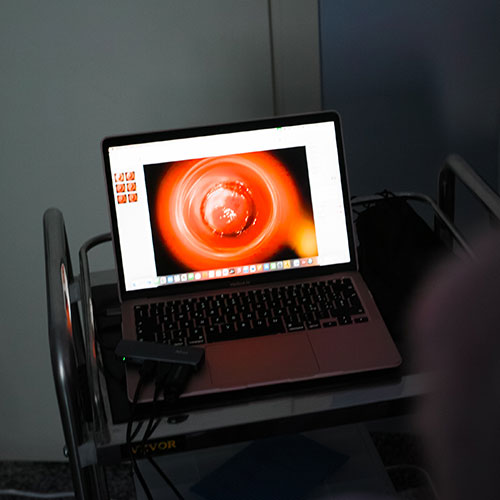
Anal itching is itself a symptom, and it manifests itself as an urgent and, often, imperative need to scratch the anus and/or perianal area.
Often, in addition to this scratching sensation, burning and pinpricks in the anal area may also be associated, worsening the symptoms and, often, making it impossible for the sufferer to concentrate.
What is the diagnosis of anal itching?
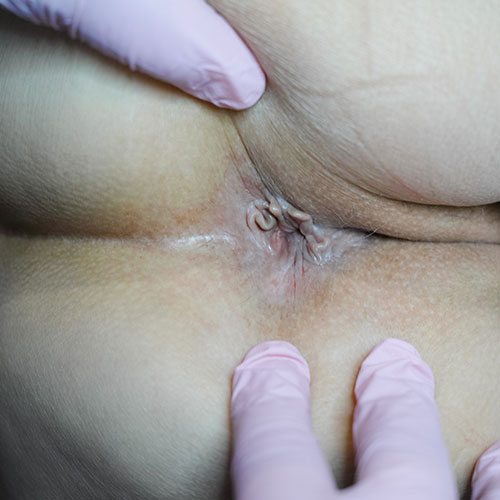
Because of the broad symptomatology and equally broad pathologic conditions that can cause it, anal pruritus has one of the most difficult diagnoses in all of Proctology.
Essentially, the diagnosis of anal pruritus is the diagnosis of the pathology that generates it: therefore, the history must be particularly precise and careful, and the Proctologist Physician must analyze every minute detail of the patient.
Past illnesses, current medical condition, any allergies or metabolic changes, dermatological sensitivities in addition to psychological condition.
The patient's diet, sexual activity, hygienic and behavioral habits must be perfectly pictured, as must his or her undergarments and fabric.
The history is then followed by the proctological examination, which, in addition to the clinical examination, is completed with proctoscopy, preferably performed by videoproctoscopy.
The purpose of the proctologic examination is to inspect not only the anal mucosa, but also the peri-anal skin, looking for lesions (even minimal ones) that may give rise to dermatitis, redness, small ulcerations, and any other conditions that could trigger itching.
In female patients, such an examination is often extended to the purely gynecological area as well, since it is not uncommon for infections (bacterial or mitotic) to spread from the vagina to the anal and perianal area.
How can anal itching be treated?
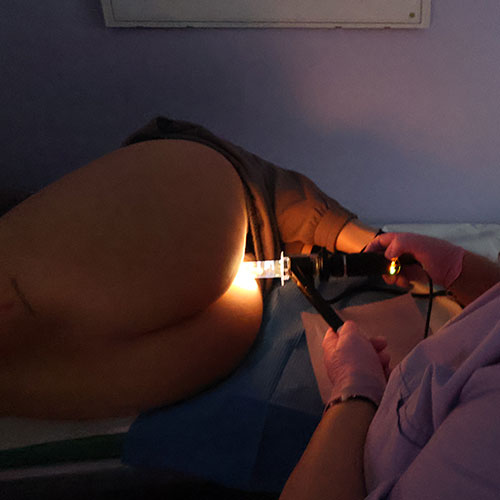
Therapy for anal itching is, playfully, therapy to treat its cause, that is, the triggering pathology.
Given that more than 20% of secondary anal itching is dependent on more or less extensive dermatitis (anitis and proctitis), the general rule of thumb to follow, regardless of the original pathology the itch, is still to maintain good hygiene of the anal and peri-anal area.
Keeping the anal area clean and dry, avoiding harsh cleansers or unnecessary (sometimes, harmful) medicated creams is, generally, a first-line therapy that is suitable as an adjunct to any specific therapy.
Corticosteroid ointments and salves are generally avoided (especially in cases of hypothetical fungal infections), and their use is prescribed only in specific cases, and only as a momentary palliative while the Proctology Physician still tries to eradicate the cause of the itching.
In cases deemed severe of itching that develops at night and makes rest difficult or completely impossible, sedatives or tranquilizers may be prescribed to allow the patient proper rest.
Not infrequently, in cases of idiopathic anal itching, the support of a Psychiatric Physician or Psychologist is often required, since in not a small percentage of individuals, the cause of intense itching is psychological in nature.
Which Physician can help with anal itching?
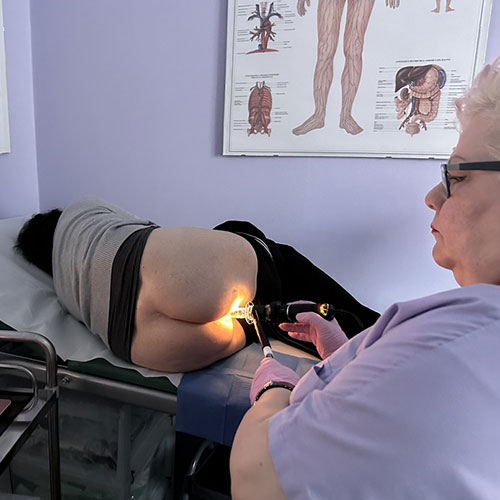
The health care specialist with expertise in anal itching, and the diseases that cause it, is the Proctologist Physician.
The Proctologist is the medical figure who studies and treats all affections of the anus and rectum, and therefore is the referral figure in case of anal itching.
Do you suffer from anal itching and are you from Dubai? Dr. Luisella Troyer is here to help you find the cause and treatment
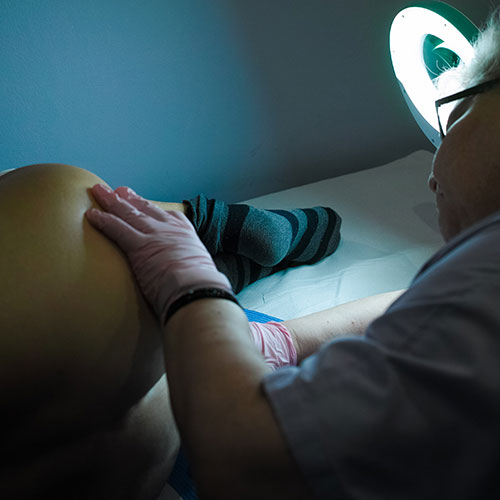
Dr. Luisella Troyer is a Vascular Surgeon perfected in Proctology, with over 30 years of experience in major diseases of the rectum and anus.
In her clinic in Dubai, you can find complete support in discovering the triggering causes of your anal itching, as well as the appropriate therapy to treat it, also thanks to excellent diagnostic tests, such as Electronic Endoscopic Videoproctoscopy.
Because you don't have to live with anal itching, you have to treat it, primarily by treating its triggers.
your proctologist surgeon of excellence in Dubai
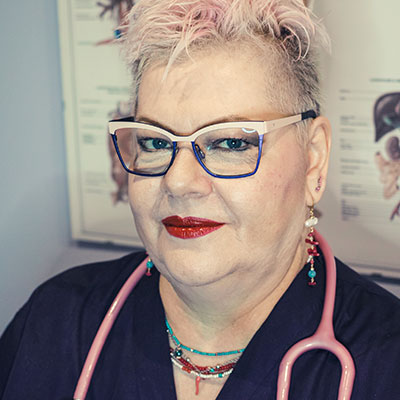
Dr. Luisella Troyer is an italian Vascular Surgeon, specialised in Proctology and Colonproctology, operating in Dubai.
In the modern, well-equipped clinic in Dubai, Dr. Troyer provides specialist medical examinations in Vascular Surgery and Colonproctology, to diagnose and solve proctological problems such as:
- Pathological haemorrhoids;
- Haemorrhoidal thrombus;
- Anal fissures;
- Anal warts;
- Peri-anal abscesses and anal fistulas;
- Chronic constipation;
- Irritable Bowel Syndrome;
- Faecal incontinence;
- Rectocele;
- Descending perineum syndrome
In the clinic in Dubai, Dr. Troyer also performs minimally invasive treatments, such as the treatment of prolapsed haemorrhoids with the innovative sterilised air-stabilised scleromousse.
For her proctological diagnoses and examinations, Dr. Troyer uses the excellence of diagnostic technology, such as the modern high-definition videoproctoscope for Electronic Endoscopic Videoproctoscopy.
All operators and assistants of Dr. Troyer speak English, Arabic and Italian.
So remember...
- ANAL ITCHING IS THAT IRREPRESSIBLE SENSATION OF SCRATCHING THE ANUS, OFTEN ACCOMPANIED BY TINGLING AND BURNING;
- ANAL ITCHING IS ALWAYS A SYMPTOM OF AN UPSTREAM PATHOLOGY, WHICH IN MOST CASES TURNS OUT TO BE PROCTOLOGICAL IN ORIGIN;
- ANAL ITCHING IS DIVIDED INTO IDIOPATHIC AND SECONDARY, DEPENDING ON THE UNDERLYING CAUSE;
- MANY PATHOLOGICAL CONDITIONS OF THE ANUS OR RECTUM CAN GIVE RISE TO ANAL ITCHING, SUCH AS PATHOLOGICAL HEMORRHOIDS, ANAL FISSURE, PROCTITIS,ANITIS, OR CONDYLOMATOSIS;
- THE DIAGNOSIS OF ANAL ITCHING IS NEVER EASY, AND COINCIDES WITH THE DIAGNOSIS OF ITS TRIGGERING PATHOLOGY;
- TREATMENT FOR ANAL ITCHING INVOLVES THE NECESSARY RESOLUTION OF THE UNDERLYING DISEASE, IF SECONDARY;
- IDIOPATHIC ANAL ITCHING IS PARTICULARLY SEVERE AND DIFFICULT TO TREAT, SINCE IN MANY CASES IT IS A PSYCHOSOMATIC SYMPTOM;
- IN CASES OF SUDDEN ITCHING, AVOID THE USE OF OVER-THE-COUNTER CORTICOSTEROID CREAMS, EVEN IF SUGGESTED BY THE PHARMACIST, BUT RATHER BOOK A SPECIALIST PROCTOLOGICAL EXAMINATION AS SOON AS POSSIBLE

This article was revised and updated by Dr. Luisella Troyer on:
Tuesday 4 February, 2025
Dr. Luisella Troyer is a Vascular Surgeon, specialising in Vascular Surgery and Proctology.
Since her training as a resident, Dr. Troyer has been interested in the study and treatment of proctological pathologies, especially haemorrhoids and haemorrhoid prolapses.
In the course of his practice as a Surgeon, he has accumulated about 5000 operating theatre hours as a first operator, of which about 120 were Milligan-Morgan haemorrhoidectomies.
He is one of the first Doctors to have studied and experimented with scleromousse therapy for pathological haemorrhoids, which he has judged to be the treatment of choice for the non-traumatic treatment of haemorrhoidal prolapses, with resolution statistics of over 95% and therefore often comparable with surgical access.








